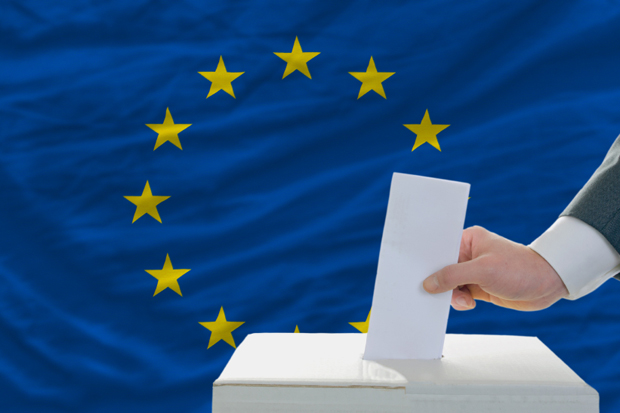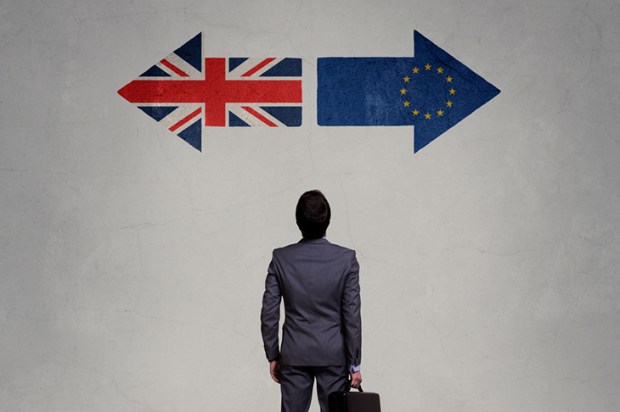We now have to take seriously the possibility that in the EU referendum Britain will vote to leave. I had hardly contemplated that. At the time (in January 2013) I saw the Prime Minister’s pledge to consult the electorate as a tactical move, designed to conciliate his party. It may well have helped David Cameron hold off the Ukip at the last general election, and secure the winning edge his party achieved.
But those of us who supposed (as did I) that the electorate would never vote to leave, so a referendum was a pretty low-risk gamble with our membership of the EU, may wonder now if we were right. The polls are more volatile than had seemed likely; meanwhile the underlying strength of the appeal of EU membership — which rests upon the underlying strength of the EU itself — is taking a big knock. On Greece and on migration the institution is looking thoroughly incompetent. Our continent feels less settled than it did two and a half years ago. There’s danger in the air.
On balance, I still think we’ll vote to stay, almost come what may. But in uncertain times, and given the propensity of senior figures on the continent to say and do things that on this side of the Channel appear as red rags to the Europhobic bull, it’s becoming possible to imagine the whole referendum thing careering out of control. On the stay or leave question, both sides need to accept that the other could win.
So I think we should look again at a proposal that Dominic Cummings, a former special adviser in the Education department and prominent critic of the Prime Minister, put forward earlier this year. In June, Mr Cummings (a fierce Eurosceptic now attached to one of the groups campaigning for a ‘leave’ result) floated the idea that if Britain voted to reject Mr Cameron’s new terms of membership, a second referendum should be promised, to take place after our government had negotiated with our European partners the proposed terms of our departure.
In this second referendum (suggested Cummings) voters would be asked whether they accepted those terms. All agree that the coming referendum is to gain democratic assent to the terms the government has negotiated for staying in the EU. The Cummings plan extends that logic, arguing that terms for our departure should likewise be put to the British people — if, that is, they vote not to accept Mr Cameron’s terms for staying.
Cummings made no bones about his motivation for advancing his plan. People would be less scared of voting in principle to leave (he reasoned) if they knew Britain’s exit would not automatically follow: not if we didn’t like the terms then negotiated for leaving. His double referendum proposal was designed to boost the ‘leave’ vote by making it feel safer because it wouldn’t be the last word.
Boris Johnson showed interest in the plan, but quickly fell silent on the subject. The reason occurred quickly to me and doubtless to some of Cummings’s allies, and to Cummings (a powerful intellect) himself. I set it out in my Times notebook on 24 June, and repeated it in an online post beneath Mr Cummings’s blog on 21 July.
‘What,’ I asked, ‘if we voted No to staying in, then, in the second referendum, No to the terms of leaving?’ Some weeks later Mr Cummings responded. ‘We would be in confusing and unknown territory,’ he wrote, adding, ‘there might be little/no time to fix what the public disliked. Hopefully having won the first No a new government team would negotiate a sensible deal and it would be popular…’
After that ellipsis (so far as I can discover), silence. Maybe his interest in his own proposal ended there. Round One (I claim) to me. But Round Two to Dominic because on further thought I’m coming to believe he was right. His proposal was a ploy for securing a ‘leave’ result that otherwise looked as if it might be beyond his reach. It may not now be beyond his reach.
So I’ve started to ponder more carefully his logic — and it’s hard to resist. A ‘stay’ vote would be a clear popular endorsement of a published plan: the government’s renegotiated terms of membership, agreed with the EU. But of what plan would a ‘leave’ vote be a popular endorsement? Wouldn’t we have to start a negotiation with our partners to agree the terms of Britain’s exit, including the terms of our access from the outside to the EU and its single market? In which case, shouldn’t the terms of our leaving be put to us, just as the (renegotiated) terms of our staying had been put to us?
Imagine, for instance, that our EU partners got into a strop about Britain’s planned departure and (cutting off noses to spite faces) decided to erect barriers to trade. Or imagine we were to be invoiced every year, as Norway is, for some of the privileges of continued open-market access. Imagine we were asked to pay towards the running of selected EU institutions that oversee the single market. Imagine our exporters were required to submit to oversight from Brussels to ensure that we did not undercut EU producers by regulating our own producers more lightly, or giving British workers fewer rights and benefits.
Think it through. Whatever may be the democratic case for putting the terms of our staying, the case for putting to the people the terms of our leaving is much stronger. Despite his claims, the terms on which we stay are unlikely to be profoundly altered by David Cameron’s renegotiation. The terms on which we leave could affect us deeply. So I’ll stick my neck out. If Britain votes to leave, there will have to be a second referendum. And we will have to have the opportunity to relent of our first decision. Dominic, you were right.
 The Spectator is hosting an evening discussion ‘Is the EU bad for business?’ at 7pm on Tuesday 20 October at The Royal College of Surgeons, WC2. Speakers include: Dominic Cummings, director of the ‘No’ campaign and Will Straw, executive director of the ‘Yes to Europe’ campaign and is chaired by Andrew Neil. For tickets and further information, click here.
The Spectator is hosting an evening discussion ‘Is the EU bad for business?’ at 7pm on Tuesday 20 October at The Royal College of Surgeons, WC2. Speakers include: Dominic Cummings, director of the ‘No’ campaign and Will Straw, executive director of the ‘Yes to Europe’ campaign and is chaired by Andrew Neil. For tickets and further information, click here.
Got something to add? Join the discussion and comment below.
Get 10 issues for just $10
Subscribe to The Spectator Australia today for the next 10 magazine issues, plus full online access, for just $10.
You might disagree with half of it, but you’ll enjoy reading all of it. Try your first month for free, then just $2 a week for the remainder of your first year.















Comments
Don't miss out
Join the conversation with other Spectator Australia readers. Subscribe to leave a comment.
SUBSCRIBEAlready a subscriber? Log in